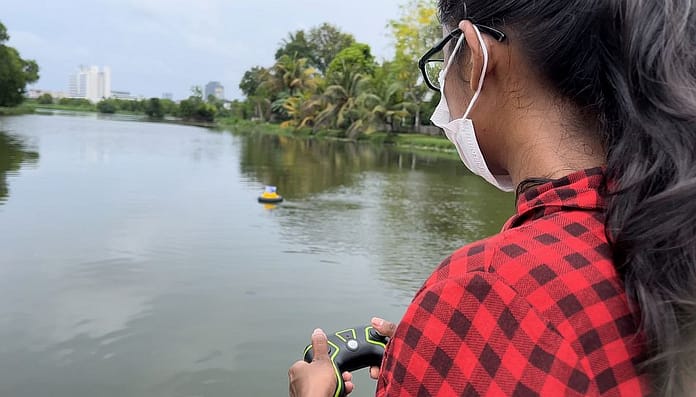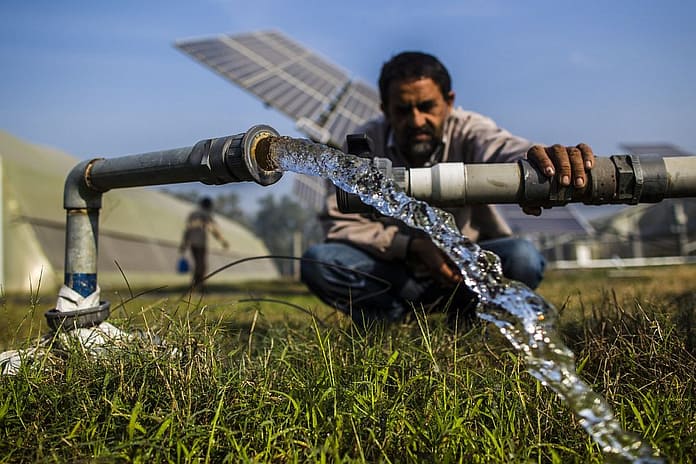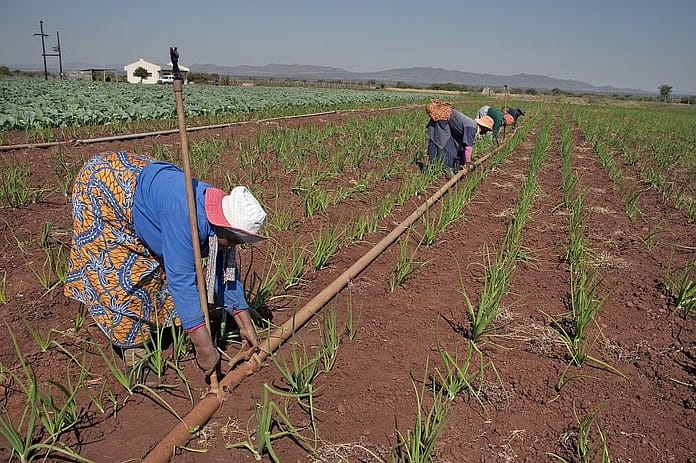If we are to achieve equitable, productive, resilient, and sustainable food systems, we must ensure that no one is left behind. The work of the International Water Management Institute (IWMI) involves all members of society – including women, youth, and other marginalized groups – and our decades-long research across Asia, Africa, and the Middle East shows that we won’t achieve our food system goals if water investments, innovations, and interventions do not respond to the complexities of inequality and exclusion.

In our IWMI Gender and Inclusion Strategy 2020-2023, we chart our path for achieving gender equality and inclusion in the coming years, and show how we are aligning this work with the CGIAR Impact Area of Gender Equality, Youth and Social Inclusion.
The IWMI Gender and Inclusion Strategy uses a transdisciplinary and multi-systems approach to focus on strengthening both how we understand and respond to gender and inclusion. In agricultural water management, for example, gender and inclusion issues arise when social norms dictate that certain roles and types of work are to be performed by men or women or disadvantaged social groups. If we assume that most aspects of farming are performed only by men – and target support only to male farmers – we leave out a large number of women whose skills and capacities are not developed, for example.
The IWMI Gender and Inclusion Strategy also strives to provide rights to economic resources, as well as access to ownership and control over land and natural resources, for all members of society who work in food, land, and water systems. Achieving greater equality in access to innovations and capacity development – as well as financial, informational, and legal services – will result in improved agricultural productivity, improved economic growth, and a decline in the number of hungry people around the world.
In recent years, IWMI’s work has highlighted key starting points in effecting change, moving from how inequalities are constructed to exploring how to tackle these structures of inequality across a range of water systems and management processes.
Making risk mitigation gender responsive
IWMI has launched a research and pilot project in Sirajganj, Bangladesh to fill the knowledge gap of how rural households deal with flood insurance. In Sirajganj, farmers rely on loans and credit to finance each growing season. This means that if a flood wipes out their crop, they might have to default on the loan. And without the proper insurance, the loss of a harvest may push them into debt. In response, men may need to leave the farm to seek paid work elsewhere, while women stay behind to manage the farm – in addition to their household duties.
To help women get more value from insurance, IWMI enlisted the microfinance institutions that are already embedded in the local social fabric to help women gain a fuller understanding of insurance products. The Index-based Flood Insurance (IBFI) project offers solutions that IWMI has successfully developed and promoted in India with strong government support, and IWMI’s research and pilot project in Sirajganj is showing how IBFI can be made accessible, especially to women and other marginal groups.
The project is documenting how simply informing women about the value of insurance is not enough if the women are unable to act on the information because men remain dominant in household decision-making. Nevertheless, ensuring women are informed of the insurance product and its functionality can be an effective means for women to influence the decisions of their husbands about whether or not to purchase insurance.
Management and inclusion are reinforcing
The path toward gender equality and inclusiveness won’t be reached by ‘band-aid’ fixes. Instead, IWMI seeks to implement gender transformative approaches which aim to change the cultural norms which lead to such inequality.
Tajikistan, for example, introduced water user associations (WUAs) to allow thousands of dekhan (small private farms) managers to take charge of the way water is managed. When the WUAs were first initiated, 98% of dehkans were run by men. But with the gradual out-migration of men, women now operate around 20–25% of all dehkans in Tajikistan.
In order to involve the women at the head of many dehkans, however, women needed access to training. But since established gender roles in Tajikistan did not associate women with technical work, women rarely received water management training. It became clear that the key to sustainable participatory irrigation systems in Tajikistan would involve directly investing in technical training for women to ensure that they – as well as men – have access to the knowledge they need to succeed in their new roles.
Collective action works
One innovation that can deliver more inclusive and water-secure solutions across the whole community of water users is a citizen science approach.
In Ethiopia, IWMI has been piloting a citizen-science approach to meteorological monitoring to provide better data for irrigation and flood-risk management. In a pilot project, IWMI offered equal opportunities to all members of the communities at four different locations. In those communities, women are traditionally responsible for obtaining and safeguarding water, and they expressed a clear desire to join the project. Unfortunately, however, numerous social norms dictated that they were unable to participate to the same degree as men. In response, IWMI is developing innovative approaches to help address these structural barriers, including conducting gender awareness training and partnering with organizations that focus on women’s empowerment, natural resource management, and adult literacy.
In the months and years ahead, we will continue to follow the path outlined in our IWMI Gender and Inclusion Strategy in order to get one step closer toward achieving a “new normal” in Bangladesh, Tajikistan, Ethiopia, and beyond: A world in which gender equality and inclusion drive a transformation towards equitable, sustainable, productive, and climate-resilient food systems.
Further reading
- Gender and Inclusion Strategy 2020-2023
- Why does gender matter in water management?
- CGIAR Impact: Gender equality, Youth and Social Inclusion





